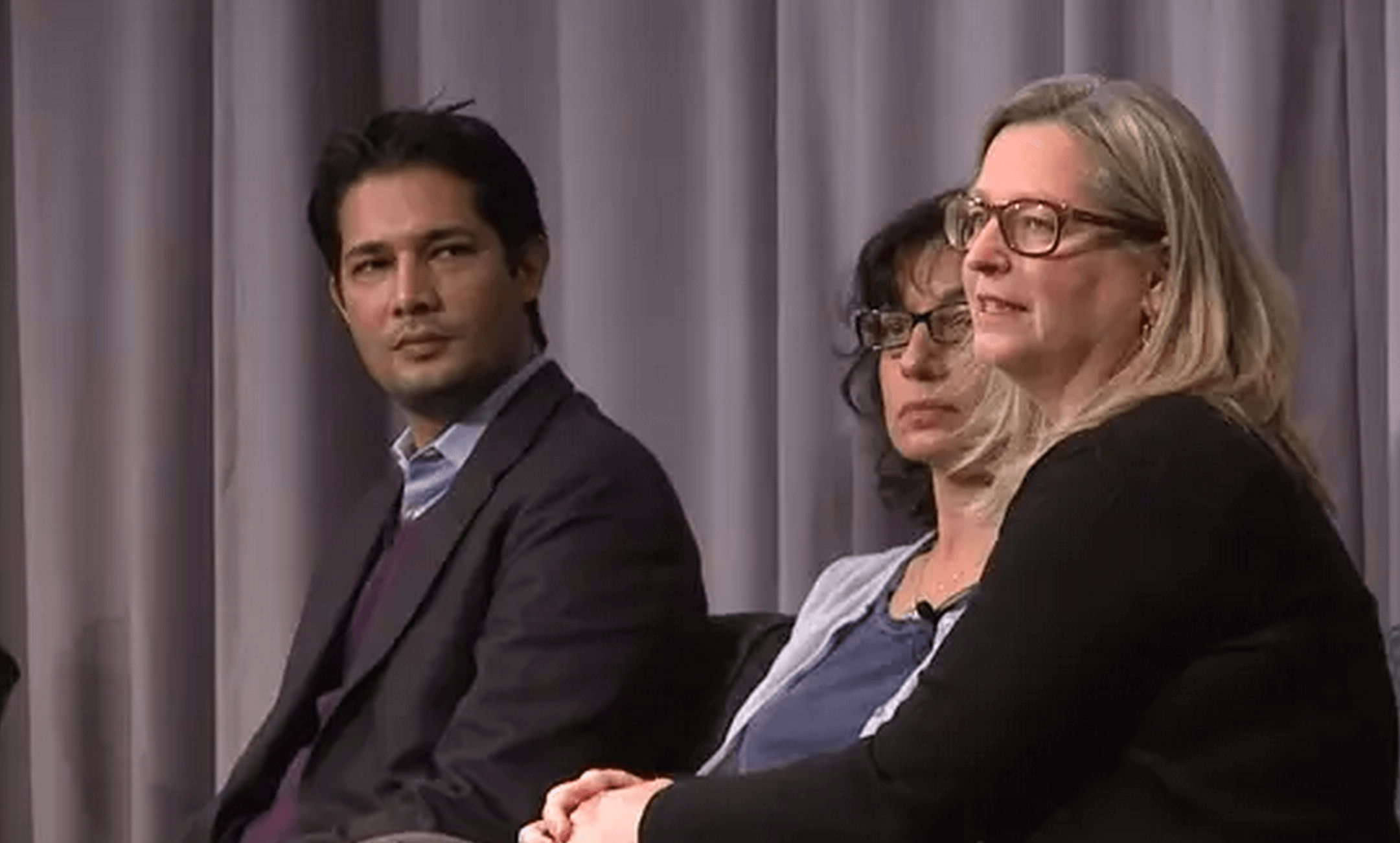5 ingredients for success in a market “ripe for disruption”

Last Wednesday at Entrepreneurship 101’s Meet the Entrepreneurs – Information and Communications Technology (ICT) lecture, we launched the Financial Technology (FinTech) cluster at MaRS with a panel of entrepreneurs who are passionate about innovation and excited about the opportunities for disruption in FinTech.
Adam Nanjee, FinTech lead in the ICT group, kicked things off by sharing his vision for FinTech in Toronto, saying: “We have a unique opportunity to build a vertical here at MaRS that would provide a central location where entrepreneurs, financial institutions and the venture capital community can come together and truly grow the innovation footprint in FinTech.”
But how do you go about bringing an innovative idea to fruition? The FinTech entrepreneurs on the panel—Nooshin Mohtashami, Wendy MacKinnon Keith, Abrar Siddiqui and Amit Jhas—agreed on five ingredients for successful disruption.
1. To be an entrepreneur you need to be passionate about the problem you’re solving
Nooshin Mohtahhsami, co-founder of Lendogram, summed up what drives an entrepreneur by saying: “I don’t want to spend my life doing something I have to do. I want to spend it doing something I love to do.”
2. You must be fully willing and committed to changing your way of life
Wendy MacKinnon Keith, founder and CEO of Digital Retail Apps, spoke from experience and warned entrepreneurs to prepare for some lean days and lifestyle changes. If you’re a dedicated founder who is passionate about your chosen problem, then there is a risk of burning out. To find something closer to a work-life balance, Abrar Siddiqui, co-founder and chief technology officer of Lucova, makes sure to take a break from work every Sunday.
3. Gather market feedback in the early days
Wendy chose to stay close to home when she went looking for her initial test customers and used their feedback and experience to find product-market fit. Entrepreneurs often use Canada as a small sample of the American market, as it is an ideal testing ground. If you can find adopters here it is a strong sign that your product will take off elsewhere.
4. Set milestones
Nooshin encouraged the audience members to dissect their vision down to the smallest most manageable problem and to start from there. Amit Jhas, Lucova co-founder and CEO, spoke from experience when he advised the crowd to plan ahead and work toward clear milestones.
5. Find a team of people who you trust and who share your vision
Amit also stressed the importance of building the right culture in the early days and ensuring that the culture scales with the business. Lucova flipped the standard startup model by building its team first, then looking to the product and, finally, working to market it.
The panellists ended their discussion by encouraging the entrepreneurs in the audience to constantly pitch their ideas and tell their stories. Adam Nanjee encouraged the audience to “keep an eye out for more financial technology events to come in 2015,” as well as for opportunities to share your stories at MaRS.
For more insights on entrepreneurship and disrupting the financial technology sector from our panellists, check out the video from the lecture.
Produced by MaRS.
Resources
- Video: Walter Isaacson on Urban Innovation
- Video: Building a Software development team: Three hot tips for startups
Want to connect?
- Join the Entrepreneurship 101 LinkedIn group
- Follow the conversation on Twitter: #ent101
- Get updates on Vimeo
- Download the course schedule
- Download the course syllabus
Missed a lecture? Find resources from each session in the Entrepreneur’s Toolkit.